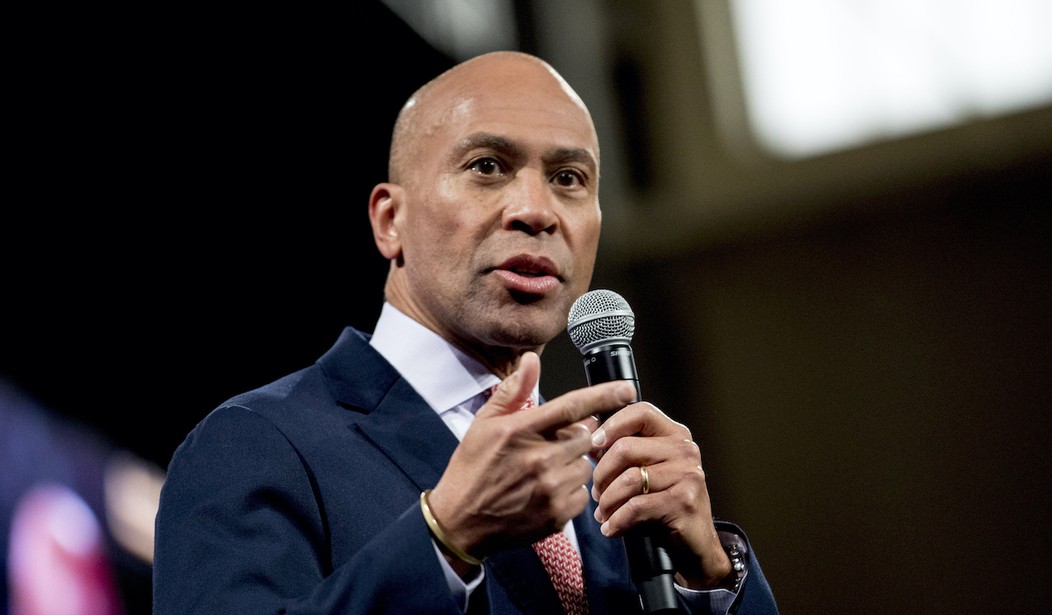There’s a well-kept secret in politics that few people will mention for obvious reasons. Blacks can’t win statewide races for governor.
There are a record number of black members of Congress and state legislators. And there are several blacks holding statewide offices like attorney general, treasurer, and comptroller.
But since the end of Reconstruction, there have only been two black governors in the U.S.: Deval Patrick of Massachusetts and Douglas Wilder of Virginia (David Patterson of New York was elected Lieutenant Governor and became governor when Elliot Spitzer resigned in disgrace).
There’s no lack of black candidates for governor — most of them Democrats — and many of them are well-funded. But it’s not the voters who are rejecting the black candidates entirely. There’s also an institutional hesitancy in the Democratic Party, according to the candidates themselves.
The big picture: The question posed by Goldman isn’t just being asked in Maryland.
Black candidates in places like Illinois, Pennsylvania, Arkansas and Wisconsin say they’re navigating similar racial dynamics.
The questions come despite unprecedented representation by officeholders and candidates, from the vice president to members of Congress and mayors.
Those dynamics don’t include “racist” voters. Black candidates are winning in districts that are 70-to-80% white. Instead, it’s the Democratic Party itself that appears to be skeptical.
One consistent comment relayed to Axios in conversations with over a dozen Black candidates, campaign staff and Democratic strategists: The skepticism doesn’t usually come from voters.
Instead, it emanates — behind the scenes — from donors, state party leaders and even D.C. pundits.
Barbara Goldberg Goldman, a prominent Maryland Democrat, wrote to fellow party insiders in December. “Consider this: Three African-American males have run statewide for Governor and have lost. Maryland is not a Blue state. It’s a purple one. This is a fact we must not ignore. In the last 20 years, only eight have been with a Democratic Governor. We need a winning team. IMHO.”
Obviously, the black candidates deeply resent the insinuation by party insiders that they can’t win because of their race.
The invocation of race as a determining factor, though, takes the discussion beyond pure politics
“The idea that there would be skepticism about a candidate’s electability because they are Black should have no place in the Democratic Party in Maryland — a state with both incredible diversity and disparities — or anywhere else in America in 2022,” said a spokesperson for the Wes Moore campaign.
The fact that only two black governors in U.S. history have been elected makes a candidate’s race very relevant. Closing one’s eyes to that history and believing that mentioning the problem should be off-limits is why Mr. Moore is going to lose.
Indeed, successful black candidates are almost always able to rise above the idea of race and win on their ideas. This is what successful black Republican candidates are able to do.
Goldman was forced to retract her email not because it wasn’t accurate and didn’t reflect the current thinking in the party; instead, she had to apologize for exposing that truth to the world.
Goldman, who is white, told Axios: “I regret making the statement. It neither accurately expresses nor depicts my views, and does not represent my lifelong commitment to supporting Democratic causes and candidates.”
A spokesman for Perez’s campaign said: “These hurtful and ill-conceived comments do not reflect the values of our campaign — as evidenced by Tom’s entire career to advance civil rights and expand opportunity.”
There is no hope for a party that can’t hear the truth and learn from it. The black candidates and staff members agreed with Goldberg but are too intimidated by the racial fanatics to say so publicly.










